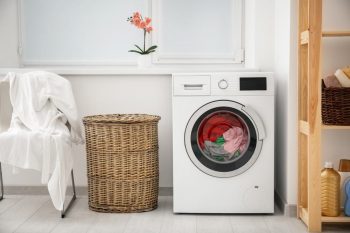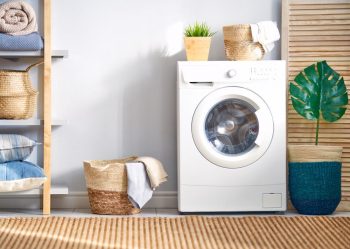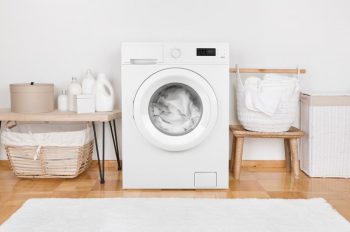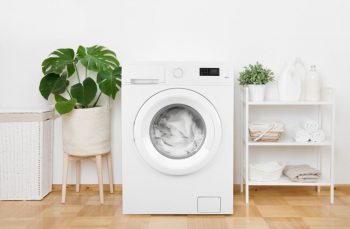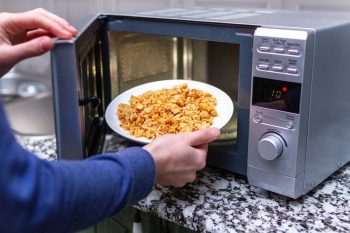
A 3-way refrigerator, as the name suggests, is a versatile appliance that can operate on three different power sources—propane, 12V DC power from a battery (or solar system), and 110V AC electricity. It’s an innovation that’s particularly popular among RV users and outdoor enthusiasts due to its flexibility and convenience. This article will delve deep into the workings, benefits, and considerations of a 3-way refrigerator.
A 3-way refrigerator is a type of appliance that can operate on three different power sources: propane, 12V DC power from a battery or solar system, and 110V AC electricity. It works on an absorption cooling cycle using ammonia, water, and hydrogen gas, making it highly efficient, versatile, and quiet. These refrigerators are popular among RV users and outdoor enthusiasts due to their flexibility and convenience.
Understanding the 3-Way Refrigerator
These refrigerators, also known as absorption refrigerators, operate on the absorption principle. Unlike traditional refrigerators that use a compressor to cool, 3-way refrigerators use a continuous cycle of ammonia, water, and hydrogen gas to keep the system operating.
The cooling cycle in a 3-way refrigerator works in a three-step process using ammonia as the refrigerant:
- The ammonia is heated and evaporated, turning it into a gas.
- The ammonia gas then combines with hydrogen gas, which lowers its temperature and causes it to condense back into a liquid.
- The liquid ammonia is then evaporated again, absorbing heat from the refrigerator’s interior and cooling it down.
Key Features of a 3-Way Refrigerator
3-way refrigerators are packed with features that make them a popular choice for RV users and campers. Some of the main features include:
- Multiple power sources: They can run on propane (LPG), 12V DC power from a battery or solar system, and 110V AC electricity.
- Absorption cooling cycle: The cooling process uses ammonia as the refrigerant, which cycles through water and hydrogen gas to keep the system operating.
- Efficiency in LP mode: 3-way refrigerators are highly efficient when operating in propane mode and can run for long durations of time.
- Quiet operation: Due to the absorption technology and minimal moving parts, 3-way refrigerators are exceptionally quiet.
- Level setup requirement: These fridges need a level setup to function properly, as they rely on the gas flow exchange system.
- Adjustable shelves and feet: Many 3-way refrigerators come with adjustable feet and removable shelves for customization and easy installation.
- Internal freezer compartment: Some models have a dedicated internal freezer space for keeping items consistently frozen.
Comparing 3-Way Refrigerators with Standard Models
When compared to standard refrigerators, 3-way refrigerators are more versatile due to their ability to run on multiple power sources. However, they do come with their own set of challenges.
While standard refrigerators use electricity only, 3-way refrigerators can run on AC power, propane, or DC power. They also use an absorption cooling system, which is quieter but requires the fridge to be level for optimal performance.
On the other hand, standard refrigerators are generally more efficient in terms of cooling performance and are more suitable for residential use.
Benefits of Using a 3-Way Refrigerator
3-way refrigerators offer several potential benefits:
- Efficiency in LP mode: These refrigerators are highly efficient when operating in LP (propane) mode, requiring only minimal amounts of 12V DC power from your RV’s battery to operate the circuitry.
- Great for boondocking: These fridges are ideal for boondocking (camping without shore or generator power) because they can run on propane, allowing you to conserve electric power.
- Multiple power sources: 3-way refrigerators can run on propane, 12V energy from a battery (DC) or solar system, and 110V electricity (AC), providing flexibility and convenience.
- Usability while driving: One significant advantage of a 3-way fridge over a 2-way fridge is that you can run your fridge while driving, ensuring your food stays cold during transit.
- Low propane consumption: 3-way refrigerators consume a minimal amount of propane, making them cost-effective for long-term use.
Drawbacks of Using a 3-Way Refrigerator
While 3-way refrigerators offer several advantages, they also have some limitations:
- Leveling requirement: The gas flow exchange cooling system in a 3-way refrigerator requires it to remain level at all times for proper functioning. This can be a challenge when parking on uneven terrain.
- Sensitivity to ambient temperature: 3-way refrigerators operate based on the outdoor ambient temperature, making them less suitable for those who plan to bring highly perishable supplies or travel in extreme temperatures.
- Inefficiency in certain modes: While 3-way refrigerators are efficient in LP (propane) mode, they can be less efficient and consume more power when operating on 12V DC power. This can lead to a quicker drain on your battery if used for extended periods.
- Installation requirements: 3-way refrigerators must be installed by a licensed and qualified gas fitter, which can add to the overall cost and complexity of the installation process.
- Cost: 3-way refrigerators are generally more expensive than their 2-way counterparts.
Despite these drawbacks, 3-way refrigerators offer some advantages, such as their ability to run on propane, making them suitable for boondocking without shore or generator power, and their quiet operation. However, it’s essential to weigh the pros and cons before deciding on a 3-way refrigerator for your specific needs.
Final Thoughts
A 3-way refrigerator is a versatile and efficient choice for those who need flexibility in power sources and want to maintain their food’s temperature during various camping situations. By understanding how they work, their benefits, and their limitations, you can make an informed decision about whether a 3-way refrigerator is right for you.
Frequently Asked Questions
How long can a 3-way refrigerator run on propane?
A 3-way refrigerator can run on a 20-pound propane tank for approximately 2-3 weeks, depending on the model and outdoor temperature. However, this duration can vary, so it’s always recommended to have a backup propane supply.
Can a 3-way refrigerator be used in a residential setting?
Although 3-way refrigerators are primarily designed for RVs and camping, they can technically be used in a residential setting. However, they may not be as efficient as standard home refrigerators, especially when operating on 12V DC power.
Does a 3-way refrigerator require any regular maintenance?
Yes, 3-way refrigerators require regular maintenance to ensure optimal performance. This includes cleaning the burner assembly and checking the refrigerator for any potential leaks.
Can I manually switch between the power sources on a 3-way refrigerator?
Yes, most 3-way refrigerators allow you to manually switch between the power sources, whether it’s propane, 12V DC power, or 110V AC power.
Can a 3-way refrigerator work on solar power?
Yes, a 3-way refrigerator can work on solar power. When the refrigerator is set to run on 12V DC, the power can be supplied by a solar system with sufficient capacity.

